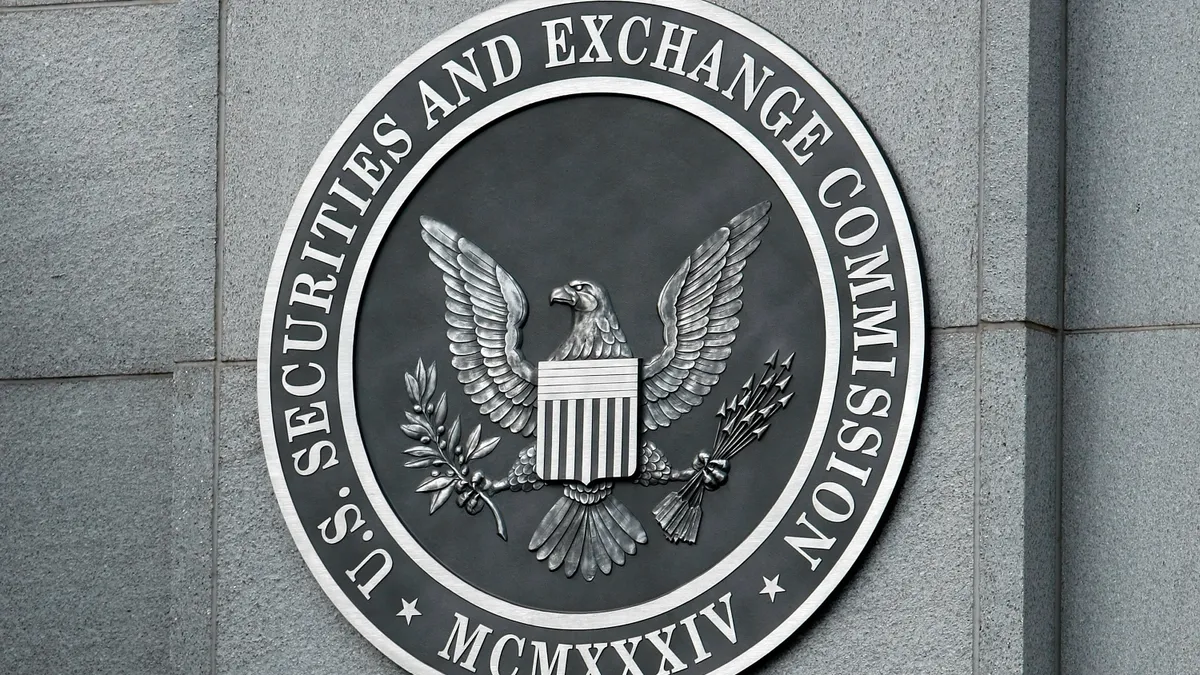The Securities and Exchange Commission on Thursday charged crypto investment firm Genesis and crypto exchange Gemini with illegally selling securities to investors through their joint Gemini Earn crypto lending program.
Genesis and Gemini in February 2021 began letting Gemini customers loan their crypto assets to Genesis in exchange for interest through Gemini Earn.
The agreement between the firms allowed Gemini Earn investors to tender their crypto assets to Genesis. Acting as a facilitation agent, Gemini then deducted an agent fee from the returns Genesis paid Gemini Earn investors, which at times was as high as 4.29%, according to the SEC complaint.
The crypto sphere was in a growth spurt when the program launched. Bitcoin was worth roughly $47,000 in February 2021. It hit its historical high point above $67,000 nine months later. However, the market fell into a slump last March, and became more volatile following the collapse of crypto exchange FTX in November. Bitcoin now trades at around $20,850.
Amid market volatility, Genesis paused withdrawals in November for Gemini Earn investors because it lacked sufficient liquid funds. The Gemini Earn program was terminated Jan. 8.
In a statement, SEC Chair Gary Gensler said Genesis and Gemini’s offering “bypass[ed] disclosure requirements designed to protect investors.”
“Today’s charges build on previous actions to make clear to the marketplace and the investing public that crypto lending platforms and other intermediaries need to comply with our time-tested securities laws,” Gensler said. “It promotes trust in markets. It’s not optional. It’s the law.”
Gemini co-founder and CEO Tyler Winklevoss called the SEC’s action “disappointing” and said it “does nothing to further our efforts and help Earn users get their assets back.”
“Their behavior is totally counterproductive," he tweeted Thursday, referring to the SEC.
Gemini vs. Genesis
When withdrawals were paused, Genesis held approximately $900 million in assets from 340,000 Gemini Earn investors. Those investors haven’t been able to withdraw their assets.
The hold-up of Gemini investors’ money spurred a series of missives from Gemini’s other co-founder, Cameron Winklevoss, and Barry Silbert, CEO of Genesis’ parent company, Digital Currency Group.
“We have done everything we can to engage with you in good faith and collaborative manner,” Winklevoss wrote Silbert on Jan. 2. “This mess is entirely of your own making.”
A week earlier, investors had sued Gemini, alleging fraud and securities violations. Winklevoss said Genesis owed Gemini $1.675 billion and gave Silbert until Jan. 8 to respond.
Silbert responded in a letter to shareholders.
“It has been challenging to have my integrity and good intentions questioned after spending a decade pouring everything into this company and the space with an unrelenting focus on doing things the right way,” Silbert wrote.
In a question-and-answer portion of the letter, Silbert clarified that Genesis owes Gemini roughly $500 million. He also detailed Digital Currency Group’s ties, or lack thereof with several crypto firms that have faced difficulty over the past year.
Cameron Winklevoss, in turn, penned a letter to Digital Currency Group’s board, demanding that Silbert be removed.
Complaints of timing
Tyler Winklevoss took issue with the timing of the SEC’s action Thursday, saying Gemini had been in discussions with the agency fo 17 months, and noting that Gemini is regulated by New York’s Department of Financial Services.
The SEC “never raised the prospect of any enforcement action until AFTER Genesis paused withdrawals on November 16th,” Winklevoss tweeted. “Despite these ongoing conversations, the SEC chose to announce their lawsuit to the press before notifying us. Super lame. It’s unfortunate that they’re optimizing for political points instead of helping us advance the cause of 340,000 Earn users and other creditors.”
Gemini is not the first crypto firm to criticize the SEC’s tactics. Coinbase scrapped its planned launch of a high-yield account in 2021, after the agency threatened to sue the company over it.
“Regulation by litigation should be the last resort for the SEC, not the first,” Coinbase CEO Brian Armstrong wrote in a tweet at the time.
Coinbase’s chief legal officer, Paul Grewal, asserted the SEC considered the scrapped product a security but wouldn’t say why or how they reached that conclusion. “The SEC would rather skip those basic regulatory steps and go right to litigation,” Grewal wrote in a blog post on Coinbase’s website.
The SEC’s complaint against Gemini and Genesis “seeks permanent injunctive relief, disgorgement of ill-gotten gains plus prejudgment interest, and civil penalties.”






















